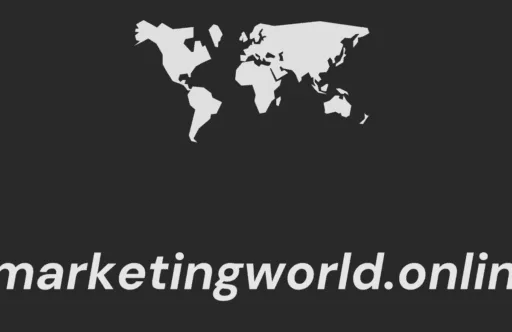
Lindsey Bradshaw is a contract PR professional working with B2B tech startups in AdTech/MarTech, cloud, knowledge/analytics, and AI.
In the event you take a scroll by LinkedIn or another social media web site for that matter, PR “dangerous habits” are killing {our relationships} with media, who aren’t shy about vocalizing their frustrations. And it’s blowing our shot at ever getting the protection we crave for purchasers.
“I feel most reporters view PR as spray-and-spray salespeople vs trusted assets,” mentioned Parry Headrick, founder at Crackle PR. “And a few of that dangerous rap is earned by tone-deaf PR individuals who don’t do the correct analysis or tailor their pitches.”
We’ve all been there at one level in our profession. Doing issues like:
- Utilizing business jargon, dangerous grammar, and typos – as far as together with the fallacious reporter’s title.
- Overpromising and underdelivering with media, reminiscent of providing a buyer you may’t present.
- Pitching information that isn’t information or pitching a reporter on one thing they clearly don’t cowl.
- Sending the identical pitch to a number of recipients is simply spam.
- Asking for adjustments to an article which can be past fact-checking.
Why are this stuff occurring? Who’s educating these dangerous habits, or the place do they arrive from?
Media relations is a junior PR professional’s job, plain and easy. Senior executives work with purchasers on technique and when pressing tasks reveal themselves, reminiscent of disaster communications. A whole lot of purchasers don’t need to hear that. And the identical may very well be mentioned for many journalists who, like purchasers, desire to work with extra strategic PR professionals on the common.
And with junior PR professionals come errors. It’s inevitable.
“What I’ve seen, particularly with businesses, is lack of coaching/improvement for newer PR professionals,” mentioned Michelle Garrett, writer of B2B PR that Will get Outcomes and proprietor of Garrett Public Relations.
“I feel businesses (or anybody who hires a brand new PR professional) must do not forget that these of us could not have a variety of hands-on expertise,” mentioned Garrett. “So, to plop them into a job and simply anticipate that they know do it isn’t real looking. Once I labored at an company, I noticed this occur. That they had NO IDEA successfully pitch journalists. It was terribly nerve-racking for them.”
In my 16-year profession, I’ve discovered (and needed to break) my justifiable share of dangerous habits. In the event you comply with me on LinkedIn, I “grew up” in PR working with B2B tech startups and in a boutique company setting. As Garrett put it, I used to be “plopped” right down to pitch on my first day. Whereas I used to be in the end profitable after an extremely nerve-racking first day, it was very a lot a sink-or-swim tradition and the turnover at our company was bananas.
I’ve labored in mid-size and huge company settings, in addition to a number of in-house environments. I’ve discovered that in company settings, dangerous PR practices run rampant, however workplace politics and tradition stop anybody from stepping in (or up) and saying something. There are junior staffers educating entry-level workers with zero to minimal oversight.
“Practices like mass pitching – pulling a random record of a whole lot of journalists from a media database then spamming out the identical pitch to ALL of them – are typically inspired. Who learns something from that?” mentioned Garrett.
“Company converse is the worst PR behavior I’ve seen, myself included,” mentioned Rachel Fukaya, a communications chief at Textio. “Company converse makes us look completely out of contact with how individuals talk and relate to one another. I see press releases from corporations like Salesforce and Workday and I can’t even let you know what they’re asserting or why it issues. AI platforms like ChatGPT and Gemini are solely going to make company converse worse.”
Is your organization or company answerable for coaching and profession improvement?
At my first company, lack of formalized coaching and mentorship led me into the position of director of constant schooling – a totally new place for the corporate. With this hat, I launched the company’s first mentor/supervisor program, coordinated month-to-month journalist lunch & learns, and developed our company’s repository of digital “how-to” property, a set of shared agency-approved assets that define PR greatest practices for day by day tasks together with constructing media lists, pitching media, press releases, disaster communications plans, planning and reporting, and extra.
“In fact, employers want to present you some stage of coaching, particularly entry-level roles, however PR professionals are additionally accountable for getting the coaching we really feel we want, Fukaya mentioned. “As a result of all of us require completely different abilities at completely different instances. It’s necessary to at all times be studying and growing ourselves in and outdoors of labor.”
On the finish of the day, PR dangerous habits are plaguing our business and journos are pissed. They’re reactive. They usually’re placing PR professionals on blast.
“PR professionals must name out the worst amongst us by persistently schooling of us about ‘what to do’ versus ‘what to not do.’ We have to acknowledge our faults as an business and elevate these dedicated to doing our craft the fitting means,” mentioned Headrick.
Simply as we’d react for a shopper, the state of relationships with the media is a PR downside that wants fixing. Outnumbering journalists 6:1, it’s our job as PR professionals to carry our colleagues accountable. To voice our issues over jargon-full writing, inappropriate pitching strategies and different ugly PR practices. It’s additionally on us to teach our journalist pals on all sides of PR, past media relations.
“From the PR facet, being higher at pitching would go a great distance. Do extra analysis, be higher at concentrating on the fitting journalists with the fitting story. And for god’s sake, simply get to the purpose,” mentioned Scott Merritt, founder and president at Strategic International Media. “All of us should be extra respectful of the opposite. All of us want to acknowledge that we’re on this collectively, and that with the correct amount of empathy we may help each other do our jobs higher.”

